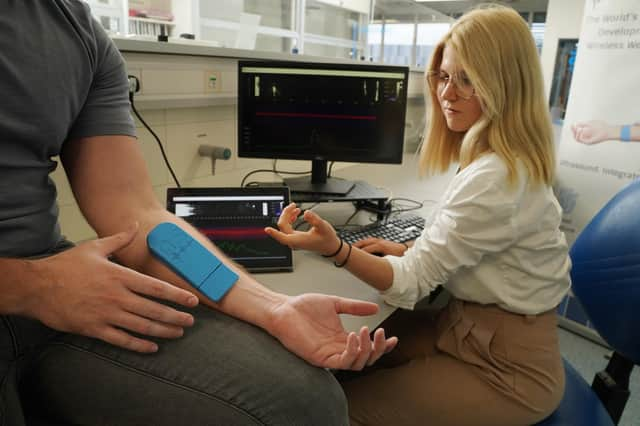Artificial intelligence offers Scottish firms huge opportunities


At The Scotsman’s Annual Investment Conference at The George Hotel in Edinburgh last week, Baillie Gifford director Ben James spoke about artificial intelligence and how AI means “business as usual is over”.
Covering tectonic shifts in the computing paradigm in recent decades - through mainframes, mini-computers, PCs, cell phones, IoT devices - James went on to describe how graphic processing units (GPUs) are foundational to today’s generative AI era.
Advertisement
Hide AdAdvertisement
Hide AdBaillie Gifford knows its stuff on the subject, with semiconductor giants like Nvidia and ASML among its stock holdings. Nvidia became the first chipmaker to reach $2 trillion market capitalisation last month, a valuation resulting from the group’s hardware used to power AI, via its H100 and upcoming H200 chips.
In a Silicon Valley tech scene where CEOs and founders are compared to rock stars, only this week Mark Zuckerberg said of Nvidia chief Jensen Huang that “he’s like Taylor Swift, but for tech”.
In his concluding remarks, Baillie Gifford’s James said AI marks a major computing paradigm shift, where OpenAI has democratised AI, and is driving changes in software development, autonomous driving, pharmaceuticals, and beyond.
A fireside chat with investment firm Eos’s partner Mark Beaumont wrapped up proceedings at this year’s conference, with the world record-breaking endurance athlete comparing “adventure” with “venture” (capital) and sharing his view that founders often learn more from failure than success, using an analogy of a capsized boat during a row across the Atlantic.
As an agency, we’ve worked with Mark and the Eos team, which includes Pathways report chair Ana Stewart, for a few years now. The term impact investment gets banded around a lot these days, but from where I sit Eos can credibly be called an impact investor.
Last week we supported a portfolio announcement where Eos led an investment into Neupulse, a university spinout that is advancing the world’s first wearable device aimed at tackling Tourettes Syndrome. The device stimulates the median nerve in the wrist, reducing the frequency of tics, a condition that is thought to affect as much as 1 per cent of the world’s population. Closer to home, Scottish musician Lewis Capaldi is one of the individuals to have trialed the innovative technology.
In a similar vein, we worked with Scottish remote sensor specialist Novosound this week as the company announced it had secured the world’s first patent for its wearable ultrasound technology. As CEO Dave Hughes commented in the press announcement, “This technology builds on the legacy of ultrasound in Scotland, where it was first demonstrated as a medical diagnostic technique at the University of Glasgow in 1954, and now as a Scottish company moves it out of the hospital into the home via a wearable device”.
Overall, while our Scottish tech scene faces ongoing challenges, including access to investment and talent, it does feel like we’re in pretty rude health in 2024. If we can tell our stories of innovation to the rest of the world, the hope is that the investment will then follow.
Advertisement
Hide AdAdvertisement
Hide AdAnother signpost in the right direction came this week when Techscaler, the Scottish Government’s startup support programme run by CodeBase, revealed a strong first year of operations where it supported over 500 startups who collectively raised over £50 million of investment during the year.
Nick Freer is the founding director of corporate communications agency the Freer Consultancy
Comments
Want to join the conversation? Please or to comment on this article.